
"The Man With The Golden Eye" tells the extraordinary figure of Marco Melani through a live projection of materials collected in over ten years of research. Found footage, unpublished interviews with cinema and television personalities, fragments of films, extracts from television programs, photographs, readings and interventions by the author, intertwine giving voice to a chorus of precious testimonies.
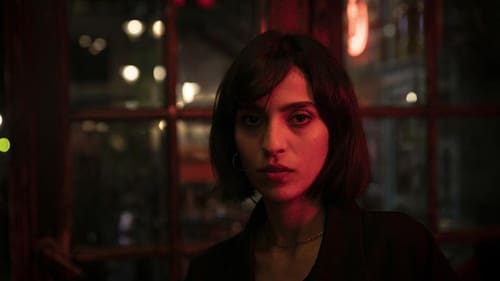
Screenplay
영화의 주인공은 갤러리와 연결된 거대한 클럽이다. 이스라엘에서 차별이 적은 도시 하이파에서도 이 클럽의 존재는 각별하다. 갤러리에선 ‘정치적 예술’을 주제로 사진전이 개최되고, 클럽에선 이스라엘과 팔레스타인 사람이 여기저기서 마주 보며 이야기를 나눈다. 그렇다고 해서 마냥 화기애애한 분위기가 전시되진 않는다. 정치적으로 자유로운 듯 보이는 공간속에서 일군의 인물들이 내뱉는 대화는 세대, 가족, 예술, 성, 문화, 역사의 차이와 갈등을 가감 없이 드러낸다. 평화와 자유를 내세운 공간의 안쪽은 그래서 더욱 뜨겁다. 중동의 문제를 종교와 인종에 국한해 단순하게 해석하는 것에 맞서, 아모스 기타이는 복잡다단한 이면을 감추지 않는다. 기타이는 여전히 예술을 통해 정치적인 이슈를 말하는 중이다.

Director
영화의 주인공은 갤러리와 연결된 거대한 클럽이다. 이스라엘에서 차별이 적은 도시 하이파에서도 이 클럽의 존재는 각별하다. 갤러리에선 ‘정치적 예술’을 주제로 사진전이 개최되고, 클럽에선 이스라엘과 팔레스타인 사람이 여기저기서 마주 보며 이야기를 나눈다. 그렇다고 해서 마냥 화기애애한 분위기가 전시되진 않는다. 정치적으로 자유로운 듯 보이는 공간속에서 일군의 인물들이 내뱉는 대화는 세대, 가족, 예술, 성, 문화, 역사의 차이와 갈등을 가감 없이 드러낸다. 평화와 자유를 내세운 공간의 안쪽은 그래서 더욱 뜨겁다. 중동의 문제를 종교와 인종에 국한해 단순하게 해석하는 것에 맞서, 아모스 기타이는 복잡다단한 이면을 감추지 않는다. 기타이는 여전히 예술을 통해 정치적인 이슈를 말하는 중이다.
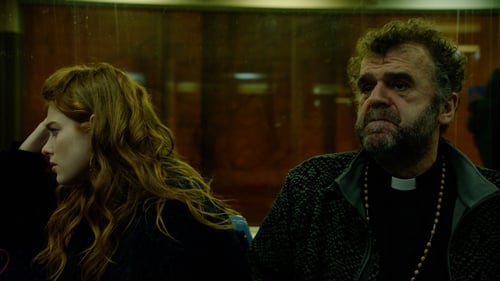
Screenplay
A Tramway in Jerusalem is a situation comedy that juxtaposes stories and human situations in the context of the current Israeli Palestinian society in 2018. In Jerusalem the tramway connects several neighbourhoods, from East to West, recording their variety and differences.

Director
A Tramway in Jerusalem is a situation comedy that juxtaposes stories and human situations in the context of the current Israeli Palestinian society in 2018. In Jerusalem the tramway connects several neighbourhoods, from East to West, recording their variety and differences.

알베르 카뮈는 1943-45년 가상의 독일친구에게 경고메시지를 전하기 위해 보낸 편지를 모아 책으로 발표한다. 카뮈에게 영감을 받은 아모스 지타이 감독은 영화감독이자 시민으로서 대화를 시작하여 사람들이 서로에게 귀를 기울이는 자리를 마련한다. 배우들이 긁을 읽고 뉴스와 자료화면 소리가 사라진다.

Screenplay
알베르 카뮈는 1943-45년 가상의 독일친구에게 경고메시지를 전하기 위해 보낸 편지를 모아 책으로 발표한다. 카뮈에게 영감을 받은 아모스 지타이 감독은 영화감독이자 시민으로서 대화를 시작하여 사람들이 서로에게 귀를 기울이는 자리를 마련한다. 배우들이 긁을 읽고 뉴스와 자료화면 소리가 사라진다.

Director
알베르 카뮈는 1943-45년 가상의 독일친구에게 경고메시지를 전하기 위해 보낸 편지를 모아 책으로 발표한다. 카뮈에게 영감을 받은 아모스 지타이 감독은 영화감독이자 시민으로서 대화를 시작하여 사람들이 서로에게 귀를 기울이는 자리를 마련한다. 배우들이 긁을 읽고 뉴스와 자료화면 소리가 사라진다.

Himself
Amos Gitai returns to the occupied territories for the first time since his 1982 documentary FIELD DIARY. WEST OF THE JORDAN RIVER describes the efforts of citizens, Israelis and Palestinians, who are trying to overcome the consequences of occupation. Gitai's film shows the human ties woven by the military, human rights activists, journalists, mourning mothers and even Jewish settlers. Faced with the failure of politics to solve the occupation issue, these men and women rise and act in the name of their civic consciousness. This human energy is a proposal for long overdue change.

Director
Amos Gitai returns to the occupied territories for the first time since his 1982 documentary FIELD DIARY. WEST OF THE JORDAN RIVER describes the efforts of citizens, Israelis and Palestinians, who are trying to overcome the consequences of occupation. Gitai's film shows the human ties woven by the military, human rights activists, journalists, mourning mothers and even Jewish settlers. Faced with the failure of politics to solve the occupation issue, these men and women rise and act in the name of their civic consciousness. This human energy is a proposal for long overdue change.

Producer
Itzhak Rabin's murder ended all efforts of peace, and with him the whole left wing of Israel died. The movie shows the last of his days as prime minister, and what led to his murder.

Writer
Itzhak Rabin's murder ended all efforts of peace, and with him the whole left wing of Israel died. The movie shows the last of his days as prime minister, and what led to his murder.

Screenplay
Itzhak Rabin's murder ended all efforts of peace, and with him the whole left wing of Israel died. The movie shows the last of his days as prime minister, and what led to his murder.

Director
Itzhak Rabin's murder ended all efforts of peace, and with him the whole left wing of Israel died. The movie shows the last of his days as prime minister, and what led to his murder.
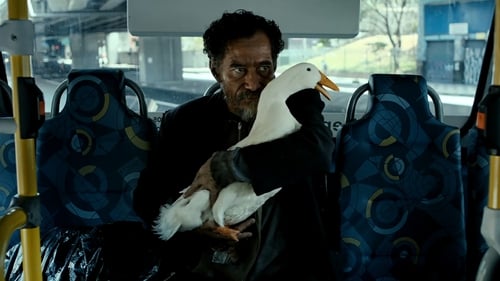
Writer
The first of four installments in the groundbreaking Heartbeat of the World anthology film series. Comprised of several short films by some of the world's most exciting directors, Words with Gods follows the theme of religion - specifically as it relates to an individual's relationship with his/her god or gods...or the lack thereof. In Words with Gods, each director recounts a narrative centered around human fragility, as well as environmental and cultural crises involving specific religions with which each has a personal relationship; including early Aboriginal Spirituality, Umbanda, Buddhism, the Abrahamic faiths, Hinduism, and Atheism. An animated sequence by Mexican animator Maribel Martinez is woven through each of the film segments, with each segment narratively connected as a feature-length film.

Director
The first of four installments in the groundbreaking Heartbeat of the World anthology film series. Comprised of several short films by some of the world's most exciting directors, Words with Gods follows the theme of religion - specifically as it relates to an individual's relationship with his/her god or gods...or the lack thereof. In Words with Gods, each director recounts a narrative centered around human fragility, as well as environmental and cultural crises involving specific religions with which each has a personal relationship; including early Aboriginal Spirituality, Umbanda, Buddhism, the Abrahamic faiths, Hinduism, and Atheism. An animated sequence by Mexican animator Maribel Martinez is woven through each of the film segments, with each segment narratively connected as a feature-length film.

Writer
Tsili is a young girl caught in the middle of World War II. After her family is taken to a concentration camp, Tsili hides in the forest, free from hatred and men, until the arrival of Marek, a stranger who speaks to her in Yiddish.

Director
Tsili is a young girl caught in the middle of World War II. After her family is taken to a concentration camp, Tsili hides in the forest, free from hatred and men, until the arrival of Marek, a stranger who speaks to her in Yiddish.

Producer
Filmed in one sequence-shot of 1 hour and 25 minutes, Ana Arabia is a moment in the life of a small community of outcasts, Jews and Arabs, who live together in a forgotten enclave at the “border” between Jaffa and Bat Yam, in Israel. One day, Yael, a young journalist, visits them. In these dilapidated shacks, in the orchard filled with lemon trees and surrounded by mass public houses, she discovers a range of characters far removed from the usual clichés offered by the region. Yael has the feeling of having discovered a human goldmine. She no longer thinks of her job. Faces and words of Youssef and Miriam, Sarah and Walid, of their neighbors, their friends tell her about life, its dreams and its hopes, its love affairs, desires and disillusions. Their relation to time is different than that of the city around them. In this tinkered and fragile place, there is a possibility of coexistence. A universal metaphor.

Writer
Filmed in one sequence-shot of 1 hour and 25 minutes, Ana Arabia is a moment in the life of a small community of outcasts, Jews and Arabs, who live together in a forgotten enclave at the “border” between Jaffa and Bat Yam, in Israel. One day, Yael, a young journalist, visits them. In these dilapidated shacks, in the orchard filled with lemon trees and surrounded by mass public houses, she discovers a range of characters far removed from the usual clichés offered by the region. Yael has the feeling of having discovered a human goldmine. She no longer thinks of her job. Faces and words of Youssef and Miriam, Sarah and Walid, of their neighbors, their friends tell her about life, its dreams and its hopes, its love affairs, desires and disillusions. Their relation to time is different than that of the city around them. In this tinkered and fragile place, there is a possibility of coexistence. A universal metaphor.

Director
Filmed in one sequence-shot of 1 hour and 25 minutes, Ana Arabia is a moment in the life of a small community of outcasts, Jews and Arabs, who live together in a forgotten enclave at the “border” between Jaffa and Bat Yam, in Israel. One day, Yael, a young journalist, visits them. In these dilapidated shacks, in the orchard filled with lemon trees and surrounded by mass public houses, she discovers a range of characters far removed from the usual clichés offered by the region. Yael has the feeling of having discovered a human goldmine. She no longer thinks of her job. Faces and words of Youssef and Miriam, Sarah and Walid, of their neighbors, their friends tell her about life, its dreams and its hopes, its love affairs, desires and disillusions. Their relation to time is different than that of the city around them. In this tinkered and fragile place, there is a possibility of coexistence. A universal metaphor.

Director
베니스영화제 70주년을 맞아 세계 각국의 감독들이 만든 2분 내외의 짧은 단편들로 구성한 옴니버스 영화. 한국에서는 김기덕, 홍상수 감독이 참여했으며 그 외에도 지아장커, 클레어 드니, 왕빙, 압바스 키아로스타미 등 70명의 감독들이 참여했다.

Cinematography
The film intertwines historical events and intimate memories. I observe how architecture represents the transformations of society and those who give form to this architecture. We follow the journey of Munio, my father, born in 1909 in Silesia, Poland, the son of a tenant farmer of a Prussian junker. At the age of 18, Munio goes to Berlin and Dessau to meet Walter Gropius, Kandinsky and Paul Klee at the Bauhaus. In 1933, the Bauhaus was closed by the Nazis, who accused Munio of treason against the German people. Munio was imprisoned, then deported to Basel. He left for Palestine. Upon his arrival in Haifa, he began a career as an architect and adapted European modernist principles to the Middle East.

Producer
The film intertwines historical events and intimate memories. I observe how architecture represents the transformations of society and those who give form to this architecture. We follow the journey of Munio, my father, born in 1909 in Silesia, Poland, the son of a tenant farmer of a Prussian junker. At the age of 18, Munio goes to Berlin and Dessau to meet Walter Gropius, Kandinsky and Paul Klee at the Bauhaus. In 1933, the Bauhaus was closed by the Nazis, who accused Munio of treason against the German people. Munio was imprisoned, then deported to Basel. He left for Palestine. Upon his arrival in Haifa, he began a career as an architect and adapted European modernist principles to the Middle East.

Narrator (voice)
The film intertwines historical events and intimate memories. I observe how architecture represents the transformations of society and those who give form to this architecture. We follow the journey of Munio, my father, born in 1909 in Silesia, Poland, the son of a tenant farmer of a Prussian junker. At the age of 18, Munio goes to Berlin and Dessau to meet Walter Gropius, Kandinsky and Paul Klee at the Bauhaus. In 1933, the Bauhaus was closed by the Nazis, who accused Munio of treason against the German people. Munio was imprisoned, then deported to Basel. He left for Palestine. Upon his arrival in Haifa, he began a career as an architect and adapted European modernist principles to the Middle East.

Director
The film intertwines historical events and intimate memories. I observe how architecture represents the transformations of society and those who give form to this architecture. We follow the journey of Munio, my father, born in 1909 in Silesia, Poland, the son of a tenant farmer of a Prussian junker. At the age of 18, Munio goes to Berlin and Dessau to meet Walter Gropius, Kandinsky and Paul Klee at the Bauhaus. In 1933, the Bauhaus was closed by the Nazis, who accused Munio of treason against the German people. Munio was imprisoned, then deported to Basel. He left for Palestine. Upon his arrival in Haifa, he began a career as an architect and adapted European modernist principles to the Middle East.
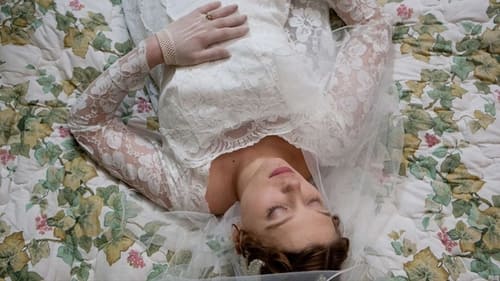
Adaptation
A young couple marry in France in the 1940s and the film follows the arc of their marriage over the next decade. As France recovers from the trauma of the war, the wife finds herself increasingly caught up in acquiring material possessions while the husband prefers a more traditional lifestyle.

Director
A young couple marry in France in the 1940s and the film follows the arc of their marriage over the next decade. As France recovers from the trauma of the war, the wife finds herself increasingly caught up in acquiring material possessions while the husband prefers a more traditional lifestyle.

Writer
Israeli filmmaker Amos Gitaï offers a look impressionist long history of armed conflict in their nation.

Israeli filmmaker Amos Gitaï offers a look impressionist long history of armed conflict in their nation.

Director
Israeli filmmaker Amos Gitaï offers a look impressionist long history of armed conflict in their nation.

Producer
A man endeavors to collect memories of his grandparents who died in a concentration camp during the Holocaust.

Adaptation
A man endeavors to collect memories of his grandparents who died in a concentration camp during the Holocaust.

Director
A man endeavors to collect memories of his grandparents who died in a concentration camp during the Holocaust.
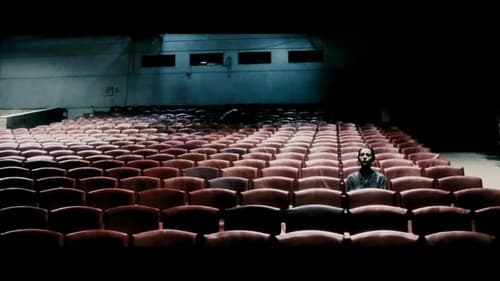
Writer
칸영화제 60주년을 기념하여 조직위원장 질 자콥이 직접 제작과 편집을 맡고, ‘영화관(館)’ 하면 떠오르는 느낌을 주제로 역대 황금종려상 수상 감독 35명이 3분짜리 스케치 33편을 찍어 완성된 영화. 거장들의 개성 넘치는 작품 속에 그들만의 영화관(觀)이 엿보인다.

Director
칸영화제 60주년을 기념하여 조직위원장 질 자콥이 직접 제작과 편집을 맡고, ‘영화관(館)’ 하면 떠오르는 느낌을 주제로 역대 황금종려상 수상 감독 35명이 3분짜리 스케치 33편을 찍어 완성된 영화. 거장들의 개성 넘치는 작품 속에 그들만의 영화관(觀)이 엿보인다.

A political drama centered around Israel's pullout from the occupied Gaza strip, in which a French woman of Israeli origin comes to the Gaza Strip to find her long ago abandoned daughter.

Writer
A political drama centered around Israel's pullout from the occupied Gaza strip, in which a French woman of Israeli origin comes to the Gaza Strip to find her long ago abandoned daughter.

Director
A political drama centered around Israel's pullout from the occupied Gaza strip, in which a French woman of Israeli origin comes to the Gaza Strip to find her long ago abandoned daughter.

Director
Movie houses in 1930s Poland and present-day Israel are attacked.

Writer
Documentary about a house and its politically divided ownership over time.

Director
Documentary about a house and its politically divided ownership over time.
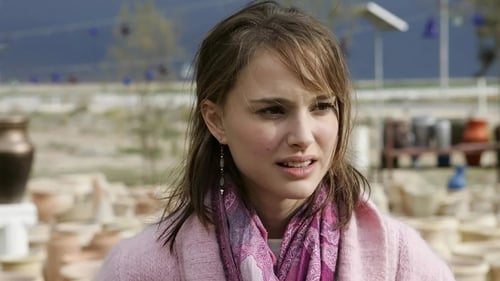
Author
Rebecca, an American who has been living in Jerusalem for a few months now, has just broken off her engagement. She gets into a cab driven by Hanna, an Israeli. But Hanna is on her way to Jordan, to the Free Zone, to pick up a large of sum of money.

Director
Rebecca, an American who has been living in Jerusalem for a few months now, has just broken off her engagement. She gets into a cab driven by Hanna, an Israeli. But Hanna is on her way to Jordan, to the Free Zone, to pick up a large of sum of money.

Director
All the feature is given prestige to by the narration in Caetano Veloso's voice, that also signs one of the segments of the project. São Paulo is the largest city of the Southern Hemisphere, with an incessant dynamics of cultural mixtures, with immigrants of all the world and migrants of all parts of Brazil. The gathering of these peculiarities are seen through the 13 film directors's sensibilities and their segments.
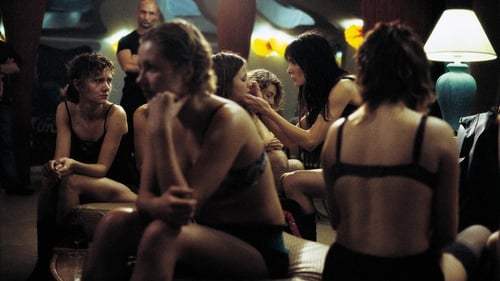
Writer
"Promised Land" tells the story of a group of young unwitting Estonian girls smuggled through Egypt to be auctioned off as prostitutes in Israel, and of their initiation into this trade of flesh, and finally of the accidental freeing of one girl who most fight for her freedom.

Director
"Promised Land" tells the story of a group of young unwitting Estonian girls smuggled through Egypt to be auctioned off as prostitutes in Israel, and of their initiation into this trade of flesh, and finally of the accidental freeing of one girl who most fight for her freedom.
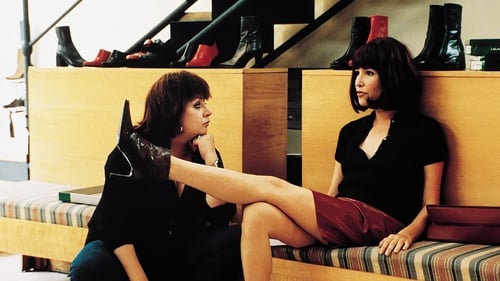
Writer
Life in a Tel Aviv apartment complex, an urban mosaic whose seedy characters, try as they might, can't get out of one another's faces. Gabi, a bobbed haired sexpot, and her lover Hezi—who's older, balding and married—rent a room to have an affair, while Ezra, a pot bellied divorcee, supervises an illegal construction site next door. All this racket drives Schwartz, a Holocaust survivor, to a mental breakdown. Other characters include illegal Chinese immigrants, a teenage boy who's afraid to serve in the army, and a corrupt police detective.

Director
Life in a Tel Aviv apartment complex, an urban mosaic whose seedy characters, try as they might, can't get out of one another's faces. Gabi, a bobbed haired sexpot, and her lover Hezi—who's older, balding and married—rent a room to have an affair, while Ezra, a pot bellied divorcee, supervises an illegal construction site next door. All this racket drives Schwartz, a Holocaust survivor, to a mental breakdown. Other characters include illegal Chinese immigrants, a teenage boy who's afraid to serve in the army, and a corrupt police detective.
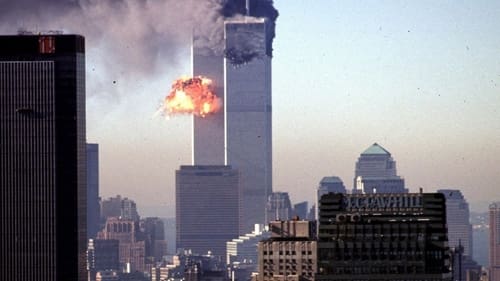
Writer
세계적인 미디어 그룹인 프랑스의 비벤디 유니버설 스튜디오의 카날 프로덕션이 전세계 11명의 주요 영화감독에게 의뢰해 9.11사태와 관련된 견해를 담아 만든 옴니버스 영화.

Director
세계적인 미디어 그룹인 프랑스의 비벤디 유니버설 스튜디오의 카날 프로덕션이 전세계 11명의 주요 영화감독에게 의뢰해 9.11사태와 관련된 견해를 담아 만든 옴니버스 영화.
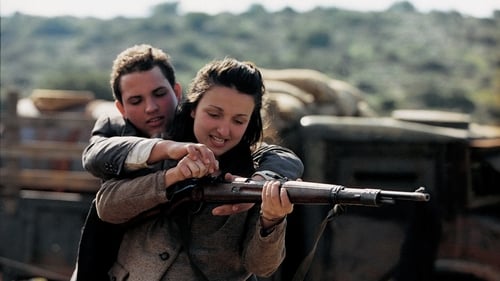
Producer
In May 1948, shortly before the creation of the State of Israel, hundreds of immigrants from across Europe arrive in Palestine--only to risk arrest by British troops.

Writer
In May 1948, shortly before the creation of the State of Israel, hundreds of immigrants from across Europe arrive in Palestine--only to risk arrest by British troops.

Director
In May 1948, shortly before the creation of the State of Israel, hundreds of immigrants from across Europe arrive in Palestine--only to risk arrest by British troops.

Producer
In 1939, Kalman, an ambitious young businessman, leaves Europe to join his sister Samantha in Palestine. She lives with Dov, an idealistic architect obsessed with the Bauhaus style. With their friends, they form a group, which discusses the future Israeli State.

Writer
In 1939, Kalman, an ambitious young businessman, leaves Europe to join his sister Samantha in Palestine. She lives with Dov, an idealistic architect obsessed with the Bauhaus style. With their friends, they form a group, which discusses the future Israeli State.

Director
In 1939, Kalman, an ambitious young businessman, leaves Europe to join his sister Samantha in Palestine. She lives with Dov, an idealistic architect obsessed with the Bauhaus style. With their friends, they form a group, which discusses the future Israeli State.

Director
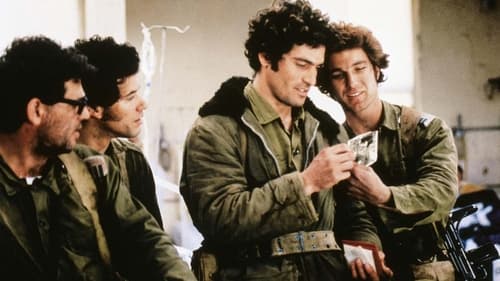
Producer
The film takes place in 1973 during the Yom Kippur War in which Egypt and Syria launched attacks in Sinai and the Golan Heights. The story is told from the perspective of Israeli soldiers. We are led by Weinraub and his friend Ruso on a day that begins with quiet city streets, but ends with death, destruction and devastation of both body and mind. Various scenes are awash in the surreal, as Weinraub's head hangs out over a rescue helicopter's open door, watching with tranquil desperation as the earth passes beneath, the overpowering whir of the blades creating a hypnotic state. It is not a traditional blood, guts and glory film. There are no men in battle, only the rescue crew trying to pick up the broken pieces.

Writer
The film takes place in 1973 during the Yom Kippur War in which Egypt and Syria launched attacks in Sinai and the Golan Heights. The story is told from the perspective of Israeli soldiers. We are led by Weinraub and his friend Ruso on a day that begins with quiet city streets, but ends with death, destruction and devastation of both body and mind. Various scenes are awash in the surreal, as Weinraub's head hangs out over a rescue helicopter's open door, watching with tranquil desperation as the earth passes beneath, the overpowering whir of the blades creating a hypnotic state. It is not a traditional blood, guts and glory film. There are no men in battle, only the rescue crew trying to pick up the broken pieces.

Director
The film takes place in 1973 during the Yom Kippur War in which Egypt and Syria launched attacks in Sinai and the Golan Heights. The story is told from the perspective of Israeli soldiers. We are led by Weinraub and his friend Ruso on a day that begins with quiet city streets, but ends with death, destruction and devastation of both body and mind. Various scenes are awash in the surreal, as Weinraub's head hangs out over a rescue helicopter's open door, watching with tranquil desperation as the earth passes beneath, the overpowering whir of the blades creating a hypnotic state. It is not a traditional blood, guts and glory film. There are no men in battle, only the rescue crew trying to pick up the broken pieces.
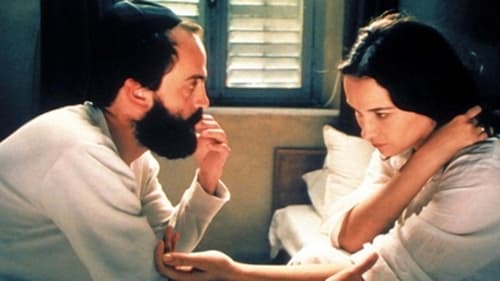
Producer
The year 2000 approaches in Jerusalem's Orthodox Mea Shearim quarter, where the women work, keep house, and have children so the men can study the Torah and the Talmud. Rivka is happily and passionately married to Meir, but they remain childless. The yeshiva's rabbi, who is Meir's father, wants Meir to divorce Rivka: "a barren woman is no woman." Rivka's sister, Malka, is in love with Yakov, a Jew shunned by the yeshiva as too secular. The rabbi arranges Malka's marriage to Yossef, whose agitation when fulfilling religious duties approaches the grotesque. Can the sisters sort out their hearts' desires within this patriarchal world? If not, have they any other options?

Writer
The year 2000 approaches in Jerusalem's Orthodox Mea Shearim quarter, where the women work, keep house, and have children so the men can study the Torah and the Talmud. Rivka is happily and passionately married to Meir, but they remain childless. The yeshiva's rabbi, who is Meir's father, wants Meir to divorce Rivka: "a barren woman is no woman." Rivka's sister, Malka, is in love with Yakov, a Jew shunned by the yeshiva as too secular. The rabbi arranges Malka's marriage to Yossef, whose agitation when fulfilling religious duties approaches the grotesque. Can the sisters sort out their hearts' desires within this patriarchal world? If not, have they any other options?

Director
The year 2000 approaches in Jerusalem's Orthodox Mea Shearim quarter, where the women work, keep house, and have children so the men can study the Torah and the Talmud. Rivka is happily and passionately married to Meir, but they remain childless. The yeshiva's rabbi, who is Meir's father, wants Meir to divorce Rivka: "a barren woman is no woman." Rivka's sister, Malka, is in love with Yakov, a Jew shunned by the yeshiva as too secular. The rabbi arranges Malka's marriage to Yossef, whose agitation when fulfilling religious duties approaches the grotesque. Can the sisters sort out their hearts' desires within this patriarchal world? If not, have they any other options?

Writer
In spite of blood ties to both Haifa's Jewish and Arab populations, Moshe (Moshe Ivgy) leads a rootless existence. Grown weary of his impatient wife Didi (Keren Mor) and ambivalent about his needy young mistress Grisha (Natali Atiya), the only relationships Moshe doesn't complicate are with his devoted parents, Jewish Hanna (Meron) and Arab Yussuf, and with Jules (Juliano Mer), Moshe's ne'er-do-well childhood friend. But when Jules' real estate developer brother moves to buy a prized piece of property from the Arab side of the family, Moshe's divided ancestry is put to the test.

Director
In spite of blood ties to both Haifa's Jewish and Arab populations, Moshe (Moshe Ivgy) leads a rootless existence. Grown weary of his impatient wife Didi (Keren Mor) and ambivalent about his needy young mistress Grisha (Natali Atiya), the only relationships Moshe doesn't complicate are with his devoted parents, Jewish Hanna (Meron) and Arab Yussuf, and with Jules (Juliano Mer), Moshe's ne'er-do-well childhood friend. But when Jules' real estate developer brother moves to buy a prized piece of property from the Arab side of the family, Moshe's divided ancestry is put to the test.

Writer
Can a house be a metaphor for Arab-Jewish relations in Israel? Amos Gitai returns to the house in West Jerusalem he profiled in 1980. He interviews members of the Jewish families who live there, and he talks with the Arab family who lived in the house until 1948. They are now in East Jerusalem and pay a nearly furtive visit to the street in front of their old house. Gitai also interviews Palestinian laborers at work on renovations and excavating an old tunnel to the Holy Mount. What do people think of each other, what do they think of Israel, what do they think of co-existence? Do the current residents know the house's history?

Director
Can a house be a metaphor for Arab-Jewish relations in Israel? Amos Gitai returns to the house in West Jerusalem he profiled in 1980. He interviews members of the Jewish families who live there, and he talks with the Arab family who lived in the house until 1948. They are now in East Jerusalem and pay a nearly furtive visit to the street in front of their old house. Gitai also interviews Palestinian laborers at work on renovations and excavating an old tunnel to the Holy Mount. What do people think of each other, what do they think of Israel, what do they think of co-existence? Do the current residents know the house's history?

Director
In the train on the way to the Festival in Vesoul, filmmakers Amos Gitai and Elia Suleiman talk about the subjects that preoccupy them: war and peace in the Middle East, their film projects, their cities, their private lives… In Vesoul, the French welcome is rather comical and the questions of war and peace in the Middle East create misunderstandings: through a kind of inverted exoticism, we end up wondering who is really the “stranger” in this story.

Director

Goldman
Drama - This Israeli drama tells the story of three men living in Tel Aviv. They set off to attend a funeral. Unfortunately, they cannot find the right cemetery. Later the story shifts to their complex love lives. - Gabi Beniashvilly, Samuel Calderon, Helena Cherkasov

Screenplay
Drama - This Israeli drama tells the story of three men living in Tel Aviv. They set off to attend a funeral. Unfortunately, they cannot find the right cemetery. Later the story shifts to their complex love lives. - Gabi Beniashvilly, Samuel Calderon, Helena Cherkasov

Director
Drama - This Israeli drama tells the story of three men living in Tel Aviv. They set off to attend a funeral. Unfortunately, they cannot find the right cemetery. Later the story shifts to their complex love lives. - Gabi Beniashvilly, Samuel Calderon, Helena Cherkasov

Writer
1992. In Wuppertal, in Germany, two skinheads killed a man who claimed to be Jewish. Amos Gitai questions the witnesses, the residents, and the protagonists of the trial.

Director
1992. In Wuppertal, in Germany, two skinheads killed a man who claimed to be Jewish. Amos Gitai questions the witnesses, the residents, and the protagonists of the trial.

Writer
Danny Cornish, a sort of stateless man who arranges art exhibits, is called from Tel Aviv to Paris with the news that a great uncle has died, in Birobidjan, the autonomous Jewish zone in Russia, leaving him a valuable art collection and the hand of a huge sculpture of a Golem. The uncle's will instructs Danny to find the rest of the statue, so Danny, who speaks no Russian, embarks on a trip that takes him (and the Golem's hand) to Moscow, St. Petersburg, and Siberia, fumbling with hotel clerks, taxi drivers, and bureaucrats, following leads, and making discoveries about myth, story telling, art, and hope.

Director
Danny Cornish, a sort of stateless man who arranges art exhibits, is called from Tel Aviv to Paris with the news that a great uncle has died, in Birobidjan, the autonomous Jewish zone in Russia, leaving him a valuable art collection and the hand of a huge sculpture of a Golem. The uncle's will instructs Danny to find the rest of the statue, so Danny, who speaks no Russian, embarks on a trip that takes him (and the Golem's hand) to Moscow, St. Petersburg, and Siberia, fumbling with hotel clerks, taxi drivers, and bureaucrats, following leads, and making discoveries about myth, story telling, art, and hope.
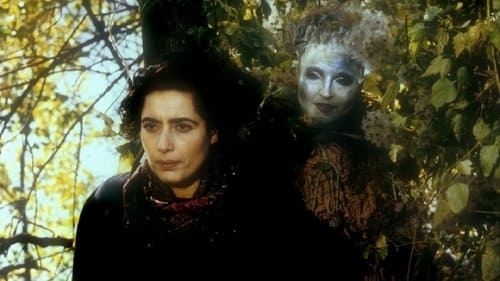
Writer
An allegory of the Golem, a Jewish mythical creature personifying displacement and exile, this film tells the story of a woman (similar to the biblical Ruth) and her sisters, who are forced into exile after the death of their husbands. It is set in 1990s Paris, where the director was living in self-imposed exile following the ban on his 1982 documentary in Israel. The recurring theme of the film is migrations and unrooting, like the legendary Golem.

Director
An allegory of the Golem, a Jewish mythical creature personifying displacement and exile, this film tells the story of a woman (similar to the biblical Ruth) and her sisters, who are forced into exile after the death of their husbands. It is set in 1990s Paris, where the director was living in self-imposed exile following the ban on his 1982 documentary in Israel. The recurring theme of the film is migrations and unrooting, like the legendary Golem.

Director

Director
With the feel of experimental film, Gitai mixes storytelling, readers' theater, cityscapes (usually seen from moving trains), and desolate landscapes to mediate on the act of creation. What if a golem were fashioned out of dirt, much like Adam, and came to life? The film imagines it, in the desert and in Moscow. Interspersed are stories of a 14th-century Tuscan artist's creation of a tower that plays music when the wind blows, of a film director, and of Jeremiah and Sirat. In what ways is making a movie like creating a golem?

Producer
Two interconnected stories in the 1930s, one set in Berlin, the other in Palestine: Mania Vilbouchevich Shohat (1880-1961), called Tania, a Russian Jew and revolutionary, goes from Minsk to Palestine to live on a collective. She promotes feminism and laments a shift in the men from self-defense to aggression. Her friend, Else Lasker-Schuler (1869 - 1945), expressionist poet and German Jew, is in Berlin, writing, caring for her son, watching Hitler's movement take power. She goes to Jerusalem and imagines a park for Arab and Jew. Her poems, voiced from within, capture her experience. The film meditates on the violence at the root of Israel's birth: of the Nazis and of the Zionists.

Writer
Two interconnected stories in the 1930s, one set in Berlin, the other in Palestine: Mania Vilbouchevich Shohat (1880-1961), called Tania, a Russian Jew and revolutionary, goes from Minsk to Palestine to live on a collective. She promotes feminism and laments a shift in the men from self-defense to aggression. Her friend, Else Lasker-Schuler (1869 - 1945), expressionist poet and German Jew, is in Berlin, writing, caring for her son, watching Hitler's movement take power. She goes to Jerusalem and imagines a park for Arab and Jew. Her poems, voiced from within, capture her experience. The film meditates on the violence at the root of Israel's birth: of the Nazis and of the Zionists.

Director
Two interconnected stories in the 1930s, one set in Berlin, the other in Palestine: Mania Vilbouchevich Shohat (1880-1961), called Tania, a Russian Jew and revolutionary, goes from Minsk to Palestine to live on a collective. She promotes feminism and laments a shift in the men from self-defense to aggression. Her friend, Else Lasker-Schuler (1869 - 1945), expressionist poet and German Jew, is in Berlin, writing, caring for her son, watching Hitler's movement take power. She goes to Jerusalem and imagines a park for Arab and Jew. Her poems, voiced from within, capture her experience. The film meditates on the violence at the root of Israel's birth: of the Nazis and of the Zionists.

Director
The 1986 Eurythmics tour of Japan. It is the end of the world tour during which Annie Lennox (vocals) and Dave Stewart (guitar) promote their latest album "Revenge". It is also, between concerts, the shock of discovery: a world of sounds as cultivated by the Japanese, both brutally technological and highly refined traditional expressions.

Producer
Ahasverus, king of Persia and Media, puts aside Vashti and makes Esther his queen, choosing her among maidens in a kingdom stretching from India to Ethiopia. Esther, using information from Mordecai, her uncle and patron, saves the king from assassination. Haman, the king's favorite, is miffed when Mordecai won't bow to him, so he orders death to all Jews in the kingdom, under the seal of the king. Esther pleads for her people, and Mordecai is in turn given license to make his own edict under the king's seal. Mordecai loses sight of his original intention, and bloody murder ensues. Purim annually celebrates the story. At the end of the film, the actors comment.

Writer
Ahasverus, king of Persia and Media, puts aside Vashti and makes Esther his queen, choosing her among maidens in a kingdom stretching from India to Ethiopia. Esther, using information from Mordecai, her uncle and patron, saves the king from assassination. Haman, the king's favorite, is miffed when Mordecai won't bow to him, so he orders death to all Jews in the kingdom, under the seal of the king. Esther pleads for her people, and Mordecai is in turn given license to make his own edict under the king's seal. Mordecai loses sight of his original intention, and bloody murder ensues. Purim annually celebrates the story. At the end of the film, the actors comment.

Director
Ahasverus, king of Persia and Media, puts aside Vashti and makes Esther his queen, choosing her among maidens in a kingdom stretching from India to Ethiopia. Esther, using information from Mordecai, her uncle and patron, saves the king from assassination. Haman, the king's favorite, is miffed when Mordecai won't bow to him, so he orders death to all Jews in the kingdom, under the seal of the king. Esther pleads for her people, and Mordecai is in turn given license to make his own edict under the king's seal. Mordecai loses sight of his original intention, and bloody murder ensues. Purim annually celebrates the story. At the end of the film, the actors comment.

Director
Documentary about the process canned pineapple takes from cultivation to sale.

Director

Director
Wadi is a valley located east of Haifa. A former stone quarry, it is a sort of enclave where Eastern European immigrants, survivors of the camps, live in a state of fragile coexistence with Arabs who have also been expelled from their homes.

Director
House is the story of a house in West-Jerusalem: abandoned during the 1948 war by its owner, a Palestinian doctor; requisitioned by the Israeli government as "vacant'; rented to Jewish Algerian immigrants in 1956; purchased by a university professor who undertakes its transformation into a patrician villa... The building site is like a theatre in which the former inhabitants, the neighbours, the workers, the builder and the new owner all appear. Israeli television censured the film. "Gitai wants this house to be both a symbol and something very concrete; he wants it to become a character in a film. He achieves one of the most beautiful things a camera can register 'live', as it were; people who look at the same thing but see different things - and who are moved by that vision. In this crumbling shell of a house, real hallucinations begin to take shape. The film's central idea is simple and the film has simply the force of that idea, no more, no less."

Cinematography
An essay parable, part documentary part fiction, on the desire for a leader, anchored in Brecht’s 1935 poem A Worker Reads History.

Director
An essay parable, part documentary part fiction, on the desire for a leader, anchored in Brecht’s 1935 poem A Worker Reads History.

Director
1974 Gitai super8 short film

Director
1973 Gitai super8 short

Director
1973 Gitai super8 short film

Director
1972 Gitai super8 short film

Director
1972 Gitai super8 short film
![Textura [1]](/assets/images/no-backdrop.png)
Director
1972 Gitai super8 short film

Self
Shards of cinema and philosophy.

Writer

Director

Director

















